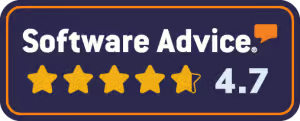It’s no secret that search engines are scraping your web content and using the data to train various AI services. The question is: How do you as a publisher benefit from content scraping for AI training? Because, as icky as it may feel to have your (human-written) material picked through and used, it can actually benefit your company.
The Bottom Line: The fact that search engines rely on content scraping to train AI algorithms gives you a unique opportunity to turn the tables on major tech companies, using their own practices to boost your online visibility and ranking value.
How Content Scraping Works
Search engines seek to make the world’s information more accessible. To do that, they employ web crawlers to scan and index web data, which is then used to power search engines and AI algorithms. It’s important to remember that this kind of content scraping is primarily used for retrieving and indexing information. However, publishers are becoming more and more concerned about how their content is being used to assist in the evolution of AI, and it’s not hard to see why.
Take Google, for example. When it comes to global search engine market share, Google dominates. That means publishers are on a constant quest to stay on the tech giant’s good side, doing whatever it takes to improve their rankings on search engine results pages (SERPs). And while Google isn’t publishing scraped content as its own, it does seem to be changing the rules surrounding what it’s allowed to do with public data.
The Google Controversy
In July, Google updated its privacy policy to say that it may use publicly available information to “help train Google’s AI models and build products and features like Google Translate, Bard, and Cloud AI capabilities.”
The move sparked immediate backlash, with many companies voicing concern about copyrighted materials and plagiarism. In response, Google was quick to add an option for publishers to block AI-training crawlers.
But how will this impact them in the long run? Is it better to reject having your data used for AI training altogether, or to use the new privacy policies to boost the value of your content and up your rankings?
How Content Scraping can Benefit YOU
The secret to ranking high on SERPs isn’t really a secret at all. Deliver quality content and a great user experience … consistently. If you’re doing that, search engines are more likely to index your data to train their AI models. You may be asking– “Why would I want that?!” Good question.
Search engines can scrape content for indexing and search purposes without explicitly using the data to train AI models, but allowing for crawlers to use your data for AI training can lead to the creation of more refined, sophisticated algorithms that understand your content and know the best way to present it. In turn, you’ll likely see a boost in visibility, search performance, and user engagement.
- Increase Your Visibility — Let’s talk SEO. When search engines scrape content to train AI algorithms, they gain a deeper understanding of your web material’s relevance and quality. This typically leads to improved indexing and ranking in SERPs, making your content more likely to appear at the top of search results and increasing its visibility to users actively seeking related information. Not only will you drive more organic traffic to your website, you’ll also increase your online presence.
- Enhance User Experience and Personalization — AI models can use scraped content to improve user experiences by providing more relevant search results and personalized recommendations. This means users will spend more time on your website, engaging with your content. By allowing your data to be used in AI training, your content will become more optimized to reach targeted audiences.
- Level Up Mobile and Voice Search — Allowing search engines to use your content for AI training will likely cause your site to show up in more mobile and voice search results. This makes your content more accessible by expanding your reach to users who rely on voice search, including those with disabilities. It also expands your reach to people who are in a hurry or already on the go.
- Optimize Long-Tail Keywords — Allowing bots to crawl your content for AI training purposes is a fantastic way to optimize your content for AI. And the better your AI-optimization, the more likely your content is to match long-tail keywords and phrases. This improves your chances of ranking high for precise user requests. As a bonus, people who search long-tail keywords usually have a pretty clear idea of what they’re looking for, making them more likely to make a purchase or sign up for a newsletter.
- Show Up in Featured Snippets and Rich Results — AI-trained algorithms can shine the spotlight on your content by using your material in featured snippets and rich results. If you let search engines scrape your data, they know more about the info you provide and can feature your content more prominently. Not only does this make your site more visible to users– it establishes your authority in their niche.
- Make More $$$ — Boosting SEO tends to have a domino effect. More visibility means increased organic traffic. As more people visit your website, you get to engage them with your articles, videos and other content. More user engagement leads to a lower bounce rate (the percentage of users who leave your site after viewing only one page) and more page views per session. At the end of the day, this domino effect gives you more opportunities to make money. Think advertising, affiliate marketing, subscription models, etc.
- Localize Search Results — Allowing crawlers to scrape your site for AI-training data can can help you appear in location-based search results, such as “near me” questions. For businesses, especially businesses with physical locations, this can be huge. It’s critical for reaching local customers and, if it suits your business model, for attracting foot traffic. This goes hand-in-hand with AI-optimized voice search, since many on-the-go users are looking for something in a specific area.
- Get a Competitive Advantage — Publishers who block bots from using their info for AI training may find themselves losing business. Publishers are going to be drawn to the most AI-optimized sites. The content there is often more effectively indexed, ranked, and presented in search results. This robs competitors of potential traffic and attention, sinking their rankings over time.
- Stay in the Know — Optimizing your content is an ongoing process, and it’s absolutely essential for keeping your site relevant and competitive. If you block AI training, you may hinder your ability to keep your content competitive as search algorithms and user behavior evolves. Keeping ahead of the game by understanding the benefits and drawbacks of content scraping for AI training is crucial if you want to maintain your visibility.
- Innovation and Research — Ever heard the saying, “You scratch my back; I’ll scratch yours”? AI research results in new technologies and innovations. By contributing your data to train AI models, you’re helping create more sophisticated algorithms that lead to new tools and services that can help you down the line. If you choose to allow search engines to use your content to train AI models, you can leverage advanced tech to stay ahead of the competition.
Key Takeaways
At the end of the day, whether or not you allow your content to be used to train AI models is a matter of preference. There are benefits and drawbacks to either choice.
The good: The better search engines know your content, the higher you’re going to rank on SERPs. The higher you rank, the more organic traffic you get. More traffic means more conversions, and so on and so forth. Allowing search engines to use your content for AI training is an easy way to grow your audience and your paycheck.
The bad: Data scraping should be done in compliance with legal and ethical guidelines, and the emerging privacy concerns are valid as AI tech evolves. For more information about blocking search engines from using your content for AI training, check out How to Keep Google from Using your Content for AI Training.







